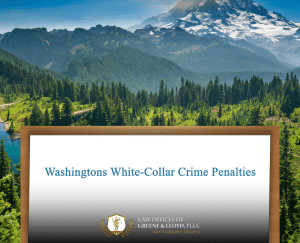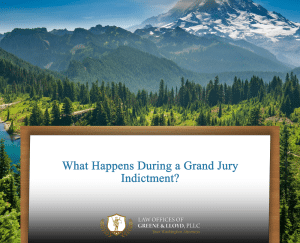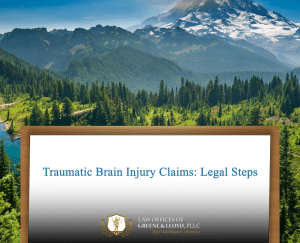## Understanding Loss of Consortium Claims in Injury Cases
When navigating the complex landscape of personal injury law, loss of consortium claims represent a critical aspect of many cases. These claims arise when a spouse or family member experiences a loss in the companionship and support due to their partner’s injuries. Essentially, if someone suffers a significant injury that disrupts their ability to provide love, affection, and support to their spouse, the affected spouse may be entitled to pursue damages through a loss of consortium claim.
Loss of consortium claims encompass emotional suffering, loss of intimacy, and changes to the relationship dynamic. Such claims are not simply about financial losses; they address the non-economic damages that stem from a traumatic event affecting a family unit. Understanding how these claims work is essential for anyone involved in a personal injury lawsuit.
Moreover, these claims can be intricate and nuanced, depending on the nature of the injury, the living circumstances of the parties involved, and the jurisdiction’s specific laws. This underscores the importance of consulting with a knowledgeable attorney who can guide claimants through the legal process while ensuring their rights are fully protected.
## The Significance of Loss of Consortium Claims
Loss of consortium claims hold significant importance in the realm of personal injury. These claims recognize and provide legal means for injured parties’ spouses to seek compensation for their suffering as a result of the injury inflicted on their partner. The emotional bond between married couples or familial relationships can be deeply affected by an unexpected accident, leading to changes not just in the injured party’s life, but in the lives of those close to them as well.
This area of law acknowledges that emotional and intimate connections are vital components of a familial or spousal relationship. When someone suffers an injury due to the negligence of another, the ripple effects often extend beyond the injured party, adversely impacting their spouse’s quality of life. By pursuing a loss of consortium claim, the affected spouse can seek compensation that reflects the pain and suffering endured as a result of their partner’s injury.
Additionally, the recognition of loss of consortium claims reinforces the higher societal value placed on family relationships and emotional wellbeing. As such, these claims serve to validate the experiences of those who face these emotionally charged situations, ensuring they receive the legal support and guidance necessary to navigate their challenges effectively.
## Legal Framework Surrounding Loss of Consortium Claims
The legal framework governing loss of consortium claims varies by jurisdiction, yet it generally involves establishing a direct connection between the injury and the loss experienced by the family member. In Washington State, for instance, loss of consortium claims are recognized and can be pursued alongside other types of personal injury claims. The success of these claims often hinges on demonstrating the tangible effects of the injury on the relationship.
To substantiate a loss of consortium claim, the spouse must provide evidence showing how the injury has affected their emotional and relational satisfaction. This may include documentation detailing changes in daily life, disruptions to family activities, or alterations in interaction and intimacy. Courts typically assess the severity of the injury, its permanence, and the extent to which it has altered the injured partner’s behavior and the overall quality of the marital relationship.
Moreover, it’s essential to recognize that loss of consortium claims can exist alongside other claims in personal injury lawsuits. For instance, if a spouse is pursuing compensation for medical bills and lost wages due to their own injury, they can still seek damages for the emotional toll taken on their partner, highlighting the multidimensional nature of these claims.
## Real-Life Illustrations of Loss of Consortium Claims
To fully grasp the implications and complexities of loss of consortium claims, it’s useful to examine real-world examples. Consider a scenario where an individual sustains life-altering injuries in a car accident caused by a negligent driver. As they navigate their recovery, their spouse may notice that the emotional connection has weakened, intimacy has diminished, and their partner’s ability to participate in family activities has been adversely affected. In this scenario, the affected spouse could file a loss of consortium claim to recuperate damages arising from this disruption to the family unit.
Another example might involve a workplace accident where an employee suffers severe injuries resulting in long-term disability. The spouse of the injured party may experience feelings of isolation and loss of companionship as they take on new responsibilities or care for their partner’s physical and emotional needs. Such emotional and relational distress could form the basis of a loss of consortium claim, as it demonstrates the impact of the injury on the non-injured spouse’s quality of life.
These examples illustrate the diverse range of circumstances that can lead to loss of consortium claims. Each case is unique, and the specific circumstances surrounding an injury ultimately shape the type and extent of compensation that can be pursued. Real-life stories underscore the visceral impacts of personal injuries, not only on victims but also on their families, emphasizing the importance of recognizing and addressing these claims in the pursuit of justice.
## Navigating the Process After an Injury
If you or your loved one has experienced an injury resulting in emotional and relational distress, understanding the steps that can be taken in pursuing a loss of consortium claim is vital. The initial step typically involves gathering relevant documentation regarding the injury. This may include medical records, accident reports, photographs, and any correspondence related to the case to establish the context and impact of the injury.
Following the collection of this evidence, consulting with a knowledgeable attorney who specializes in personal injury litigation is strongly recommended. An attorney will provide guidance on the viability of a loss of consortium claim and assist with determining the appropriate parties to pursue for damages, especially in cases involving multiple liable parties. This legal guidance can prove invaluable in ensuring that all avenues for compensation are thoroughly explored.
As the case progresses, the non-injured spouse may be required to collect testimonies, medical evaluations, and potentially expert witnesses to substantiate their claim. It’s important to approach this process methodically, as the success of a loss of consortium claim hinges on the strength of the evidence presented. Engaging in the claims process with a strategic approach and meticulous attention to detail can significantly influence the case’s outcome.
## Avoiding Common Pitfalls in Loss of Consortium Claims
Pursuing a loss of consortium claim can be fraught with challenges, and several common mistakes can hinder the likelihood of a favorable outcome. One frequent pitfall is the failure to document the emotional and relational impacts adequately. It is essential for the non-injured spouse to keep a comprehensive record of how the injury has affected their daily life, including changes in their relationship or alterations in personal routines. Without proper documentation, the claim may lack the necessary evidence to support the assertions made.
Another mistake to avoid is underestimating the importance of legal representation. Some individuals may believe they can navigate the claims process independently, but the intricacies of personal injury law necessitate skilled guidance. An experienced attorney will have the knowledge required to navigate the often-complex legal pathways involved in filing such claims, ensuring all aspects are properly addressed. This includes negotiations with insurance companies and potential litigation procedures in court.
Lastly, claimants should avoid rushing into a settlement agreement without fully evaluating the long-term implications of such an agreement. Loss of consortium claims may take time to build a compelling case, and settling prematurely could result in insufficient compensation that may not fully address the emotional and relational losses suffered.
## The Role of Legal Counsel in Loss of Consortium Claims
The legal landscape surrounding loss of consortium claims can be intricate, making the role of professional legal counsel an essential component for those considering such claims. An attorney specializing in personal injury cases will possess the knowledge necessary to help clients understand their rights and the potential scope of their claims. They can provide insights into how loss of consortium claims fit within the larger framework of personal injury law, ensuring that clients are well-informed throughout the process.
Legal counsel can also take a proactive approach in collecting evidence, consulting experts, and developing a compelling narrative to present in court or during negotiations with insurance providers. Attorneys familiar with loss of consortium claims understand the types of documentation that resonate with juries and adjust their strategies accordingly, which can significantly impact the outcome of a case.
Moreover, representation can alleviate some of the emotional burdens often accompanying such claims. Navigating personal injuries and their repercussions can be daunting, and having skilled counsel allows claimants to focus on healing and reclaiming their lives, while their legal rights are vigorously advocated for on their behalf.
## How Law Offices of Greene & Lloyd, PLLC Can Support Your Claim
The Law Offices of Greene & Lloyd, PLLC, offer focused and compassionate legal support for individuals navigating the complexities of loss of consortium claims. Our team has a comprehensive understanding of personal injury law and the nuances unique to loss of consortium claims, equipping us to help clients effectively pursue their rights. Our commitment extends beyond mere legal representation; we strive to understand the personal impacts of injuries on families and work tirelessly to pursue justice for our clients.
We recognize that each case is unique, necessitating personalized attention and customized strategies tailored to the specific circumstances of each client’s situation. From initial consultations to the final resolution of claims, we are dedicated to ensuring our clients navigate the turmoil often associated with personal injuries with confidence and care. Our approach emphasizes clear communication and ensuring clients feel supported throughout each step of the legal process.
In addition, our firm stays up to date with changes in laws and emerging trends within Washington State, ensuring that we advocate effectively in every case. We aim to alleviate the burdens associated with pursuing a loss of consortium claim, allowing our clients to focus on reclaiming their emotional wellbeing and fostering healing within their families.
## Frequently Asked Questions About Loss of Consortium Claims
## Additional Resources for Loss of Consortium Claims
For those seeking further information about loss of consortium claims and personal injury law, various reputable resources offer insights and guidance. Local bar associations often provide information on legal rights and access to attorneys specializing in personal injury. Additionally, Washington State’s Legal Resources page features valuable information tailored specifically to residents navigating personal injury claims.
Furthermore, numerous legal blogs and websites, such as the American Bar Association and various personal injury law firms, offer articles and resources addressing loss of consortium and related claims. Understanding the legal landscape through these informative resources can empower individuals to make informed decisions regarding their legal rights and options.
As personal injury law can be highly intricate, engaging with knowledgeable attorneys through consultations and seeking out legal resources can significantly aid in navigating any claim, including loss of consortium. This proactive approach enables individuals to better understand their circumstances and the potential avenues for recovering damages.




